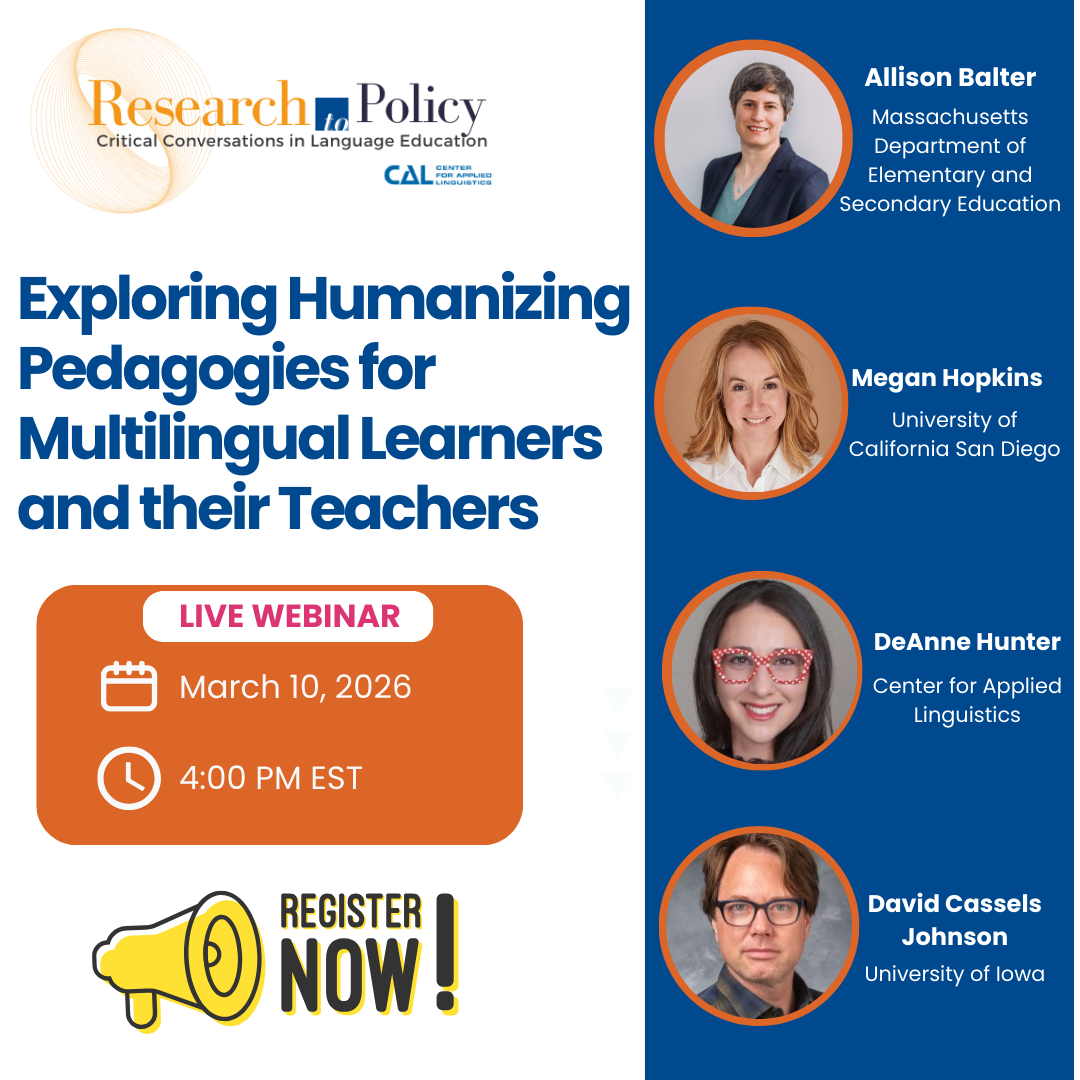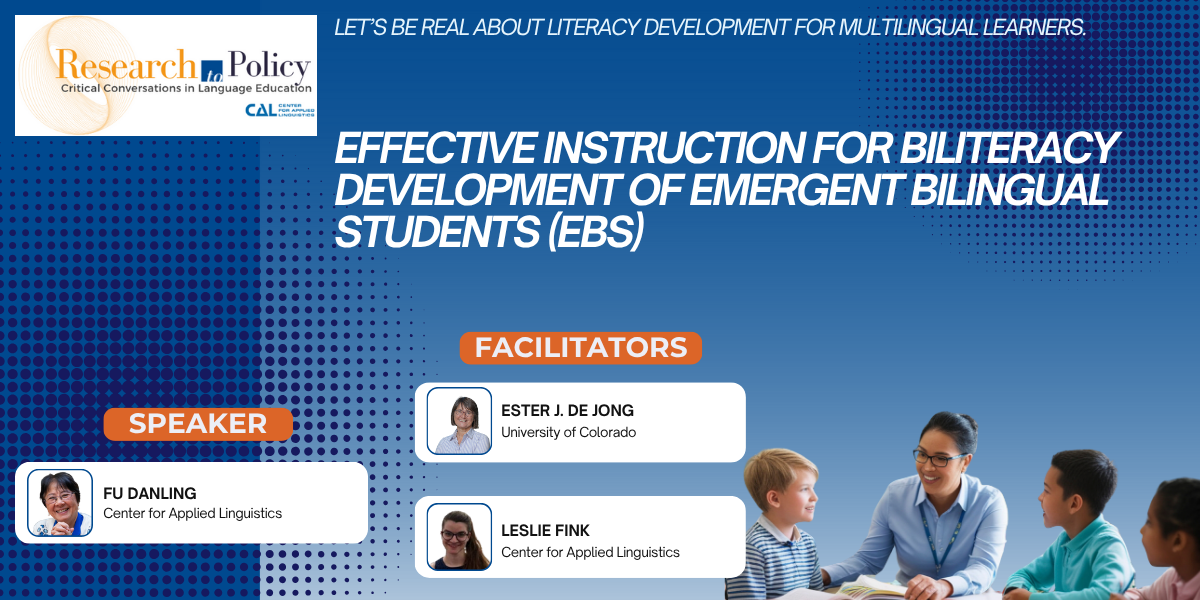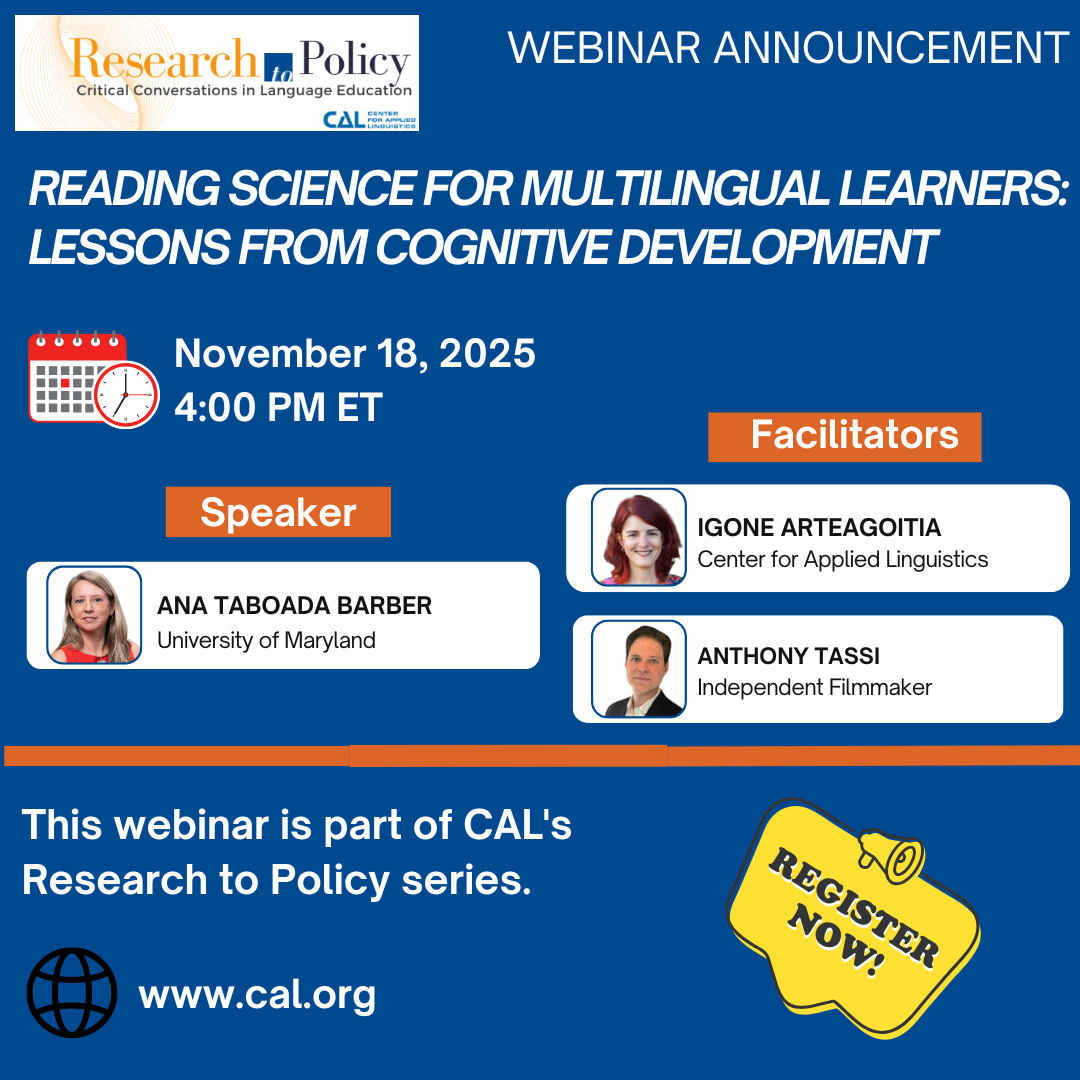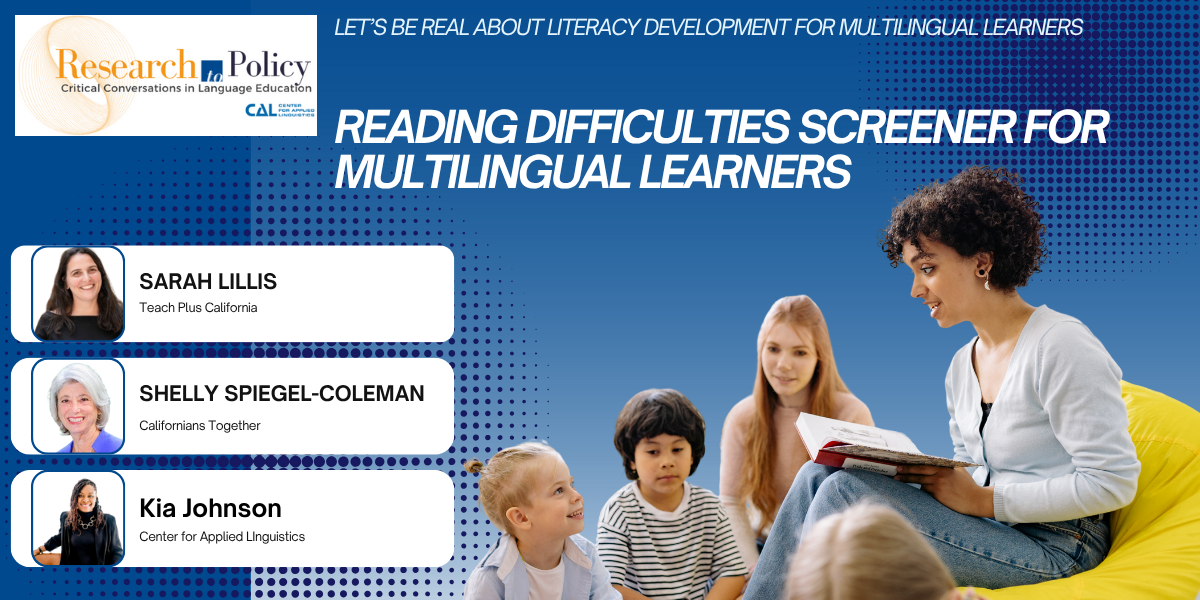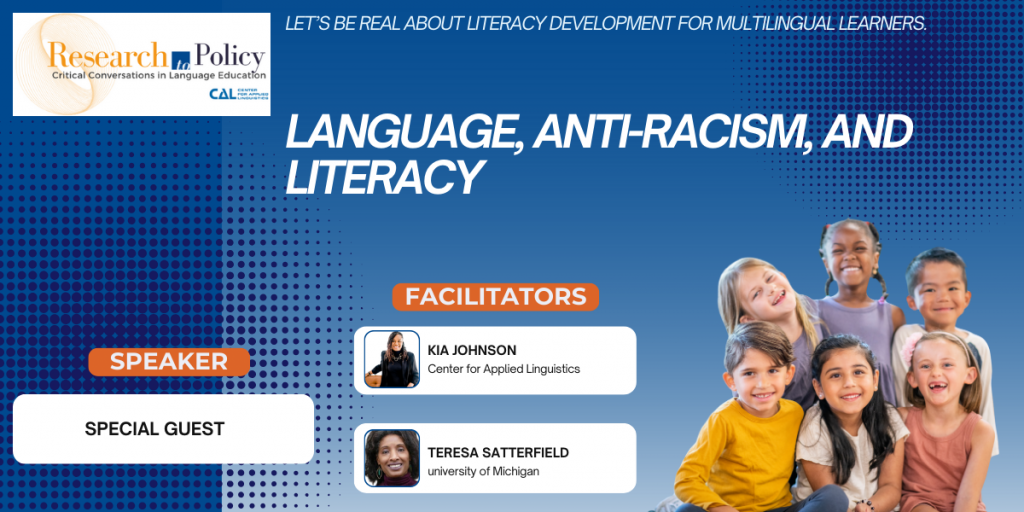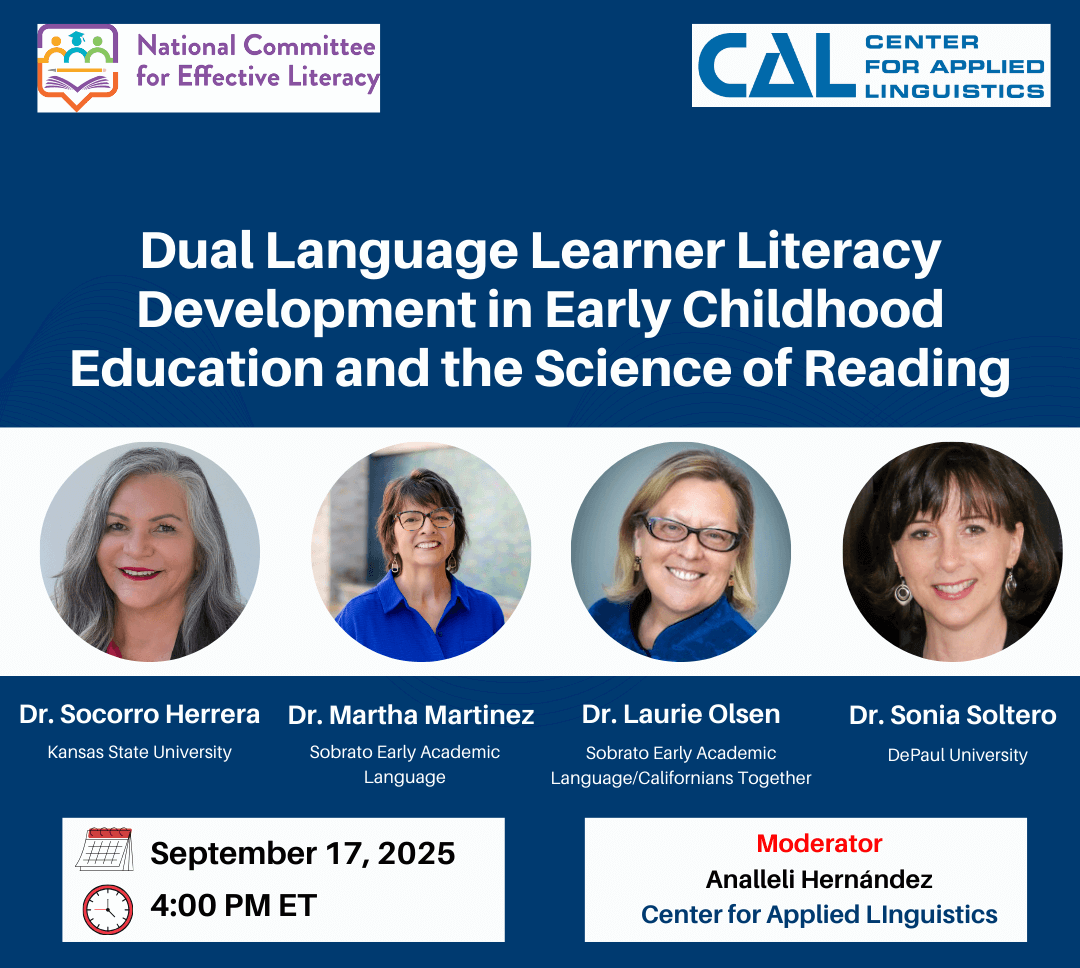WEBINAR ANNOUNCEMENT
TITLE: Upholding the Educational Civil Rights of Multilingual Learners and Families
DATE: March 10, 2026
TIME: 4:00–4:30 p.m. EDT
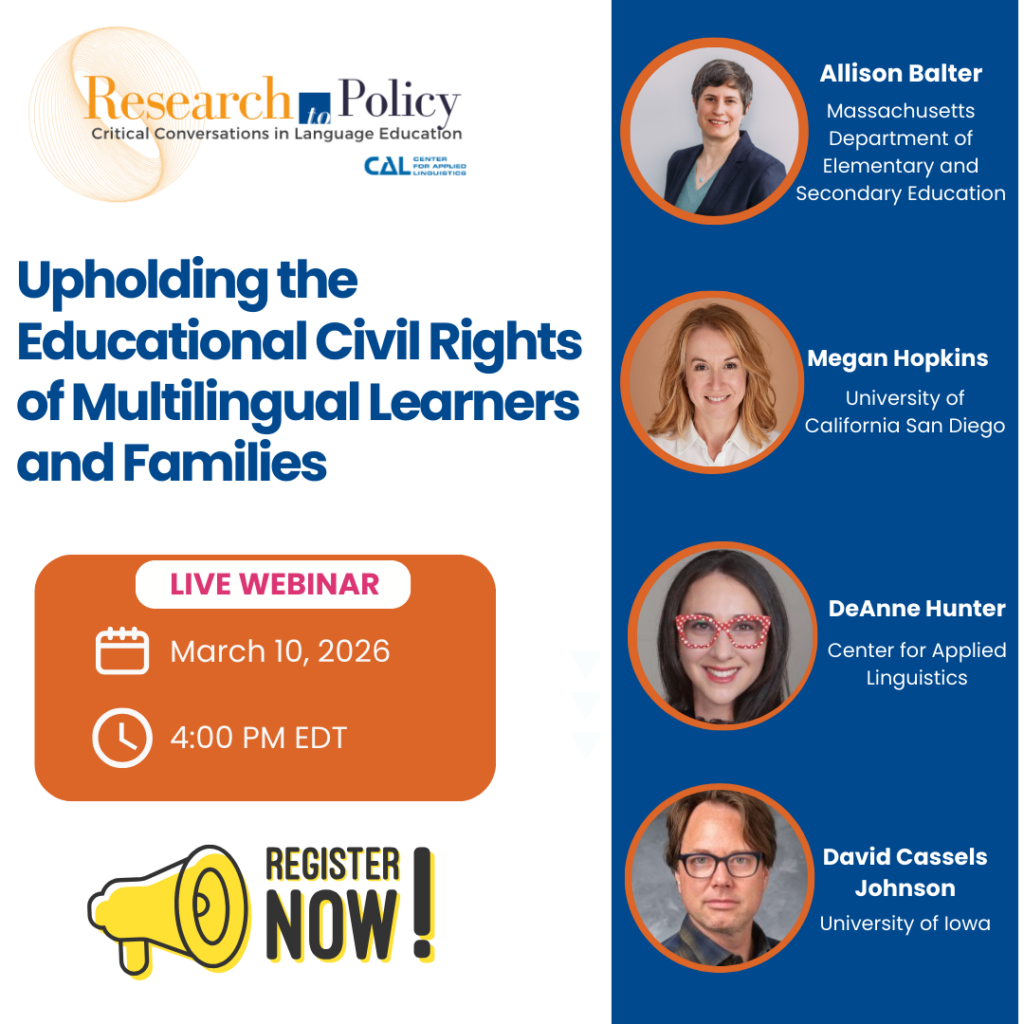
DETAILS:
States, districts, and schools have a legal and ethical obligation to ensure that all students, regardless of the language(s) they speak at home, have access to meaningful, equitable learning opportunities. Grounded in federal policy and civil rights law, these obligations extend to instructional access, language development supports, family engagement, and nondiscriminatory practices that enable multilingual learners to thrive academically and socially.
In this webinar, policy experts and practitioners will unpack the educational civil rights that protect multilingual learners and their families, clarifying what these rights mean in practice and how they are grounded in existing law and guidance. Participants will also hear directly from a state-level leader about how these civil rights frameworks are being implemented on the ground, highlighting policy levers, practical strategies, and lessons learned that can inform efforts in other contexts.
Join us to deepen your understanding of the civil rights of multilingual learners and the policies, practices, and partnerships essential to upholding them across educational systems.
———————————————————————————————————————–
Important Notice on CAL Webinar Content
All webinars, recordings, and related materials produced by the Center for Applied Linguistics (CAL) are protected by copyright. They are made available exclusively through CAL’s official platforms for educational and informational purposes.
CAL does not authorize the reposting, redistribution, or resale of our webinars on any third-party websites. Any such uploads are unauthorized and may not accurately represent the original content.
To ensure you are accessing the most accurate, complete, and up-to-date info, please view webinars only through CAL’s official website and communication channels.
·

